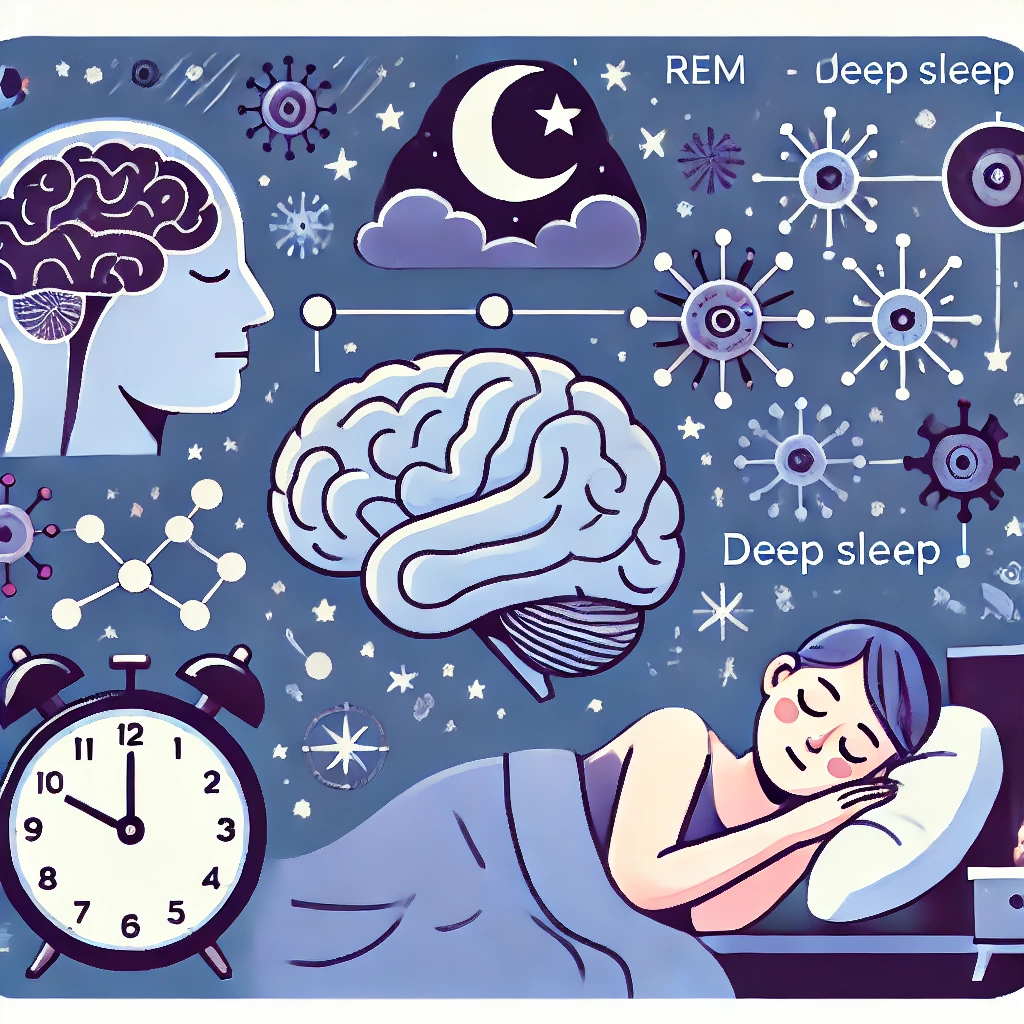Introduction
Sleep is a fundamental aspect of our health and well-being, yet many of us struggle to get the quality rest we need. Understanding the science behind sleep can help us improve our sleep habits and overall health. This article delves into the stages of sleep, the importance of sleep, and practical tips to enhance your sleep quality.
The Stages of Sleep
Sleep is a complex process that occurs in cycles, each consisting of different stages. These stages are categorized into non-REM (Rapid Eye Movement) and REM sleep.
- Non-REM Sleep:
- Stage 1: This is the lightest stage of sleep, lasting just a few minutes. It’s the transition between wakefulness and sleep.
- Stage 2: A slightly deeper sleep where heart rate slows, and body temperature drops. This stage accounts for about 50% of our total sleep time.
- Stage 3: Also known as deep sleep or slow-wave sleep. This stage is crucial for physical restoration, growth, and immune system function.
- REM Sleep:
- REM sleep is characterized by rapid eye movements, increased brain activity, and vivid dreaming. It plays a key role in cognitive functions such as memory consolidation, learning, and mood regulation.
The Importance of Sleep
Adequate sleep is essential for various aspects of health:
- Physical Health: Sleep supports physical health by promoting healing and repair of the heart and blood vessels, boosting the immune system, and maintaining hormonal balance.
- Mental Health: Quality sleep improves cognitive function, emotional stability, and mental clarity. It helps reduce stress, anxiety, and depression.
- Performance and Safety: Good sleep enhances concentration, productivity, and overall performance. It also reduces the risk of accidents caused by drowsiness.
Tips to Improve Sleep Quality
Improving your sleep quality involves adopting healthy sleep habits and creating an optimal sleep environment. Here are some practical tips:
- Stick to a Sleep Schedule:
- Go to bed and wake up at the same time every day, even on weekends. This helps regulate your body’s internal clock.
- Create a Relaxing Bedtime Routine:
- Develop a pre-sleep routine to unwind, such as reading a book, taking a warm bath, or practicing relaxation techniques like meditation or deep breathing.
- Optimize Your Sleep Environment:
- Ensure your bedroom is conducive to sleep. Keep it cool, dark, and quiet. Invest in a comfortable mattress and pillows.
- Limit Exposure to Screens Before Bed:
- The blue light emitted by phones, tablets, and computers can interfere with your sleep. Try to avoid screens at least an hour before bedtime.
- Watch Your Diet and Caffeine Intake:
- Avoid large meals, caffeine, and alcohol close to bedtime. These can disrupt your sleep cycle.
- Stay Active:
- Regular physical activity can promote better sleep, but try to avoid vigorous exercise close to bedtime.
- Manage Stress:
- Stress and anxiety can hinder sleep. Practice stress-reducing activities like yoga, journaling, or talking to a friend.
Conclusion
Understanding the science behind sleep can help us appreciate its vital role in our health and well-being. By adopting healthy sleep habits and creating a supportive sleep environment, we can improve our sleep quality and overall quality of life. Prioritize your sleep and reap the benefits of a well-rested mind and body.
Invest in your sleep health today for a brighter, more productive tomorrow.






